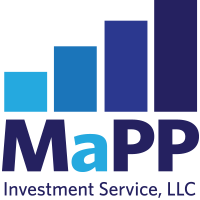- Individuals
- Retirement Planning
- College Savings
- Insurance Planning
- Tax Planning Strategies
- Estate Planning
- Post Retirement Income Planning
- Charitable Giving Strategies
- Advisor Coordination
How much insurance coverage do I need?
When you hear the word insurance, what types of insurance come to mind? While there is an insurance product available for every situation, this does not mean that you need it at all, or that you should carry hundreds of thousands of dollars of coverage. It simply indicates that we must assess the risks in your life and determine whether you might want to protect yourself from any of them. A brief description of the most common types of insurance follows.
Life insurance
Life insurance is a hedge against one’s inevitable death and delivers money when it is most needed. It can also be a vehicle to accumulate money to be used during your lifetime. There are numerous types of policies in the marketplace and many variations within each type.
The two basic types of life insurance are term life and permanent (cash value) life. Term life provides coverage for a specified period of time, while permanent insurance provides protection for your entire life. Permanent life insurance can be further broken down into several types, including whole life, variable life, and variable universal life. Your financial advisor can assist you in selecting the right type for you by evaluating your need for protection, your goals for your family and business, and your cash flow. He or she can then recommend a product and an insurance company and also help you decide whether your life insurance should be owned by you or by a trust.
Health insurance
Health insurance can safeguard your assets from the high costs of health care. Most people lack the financial resources needed to pay the medical expenses associated with a health crisis, such as a life-threatening illness or a significant injury. In addition, the costs of physical exams, prescription drugs, hospital stays, pregnancy, and routine medical conditions can add up and cause financial hardship if you must pay for them on your own.
Most individuals obtain health insurance through their employer and have very little input into the selection. Some employers offer an HMO alternative, as well as the traditional reimbursement type of health insurance. If you are the employer or business owner, your financial professional can help you understand your available health insurance deductions and the opportunities of first-dollar coverage with health and flexible savings accounts.
Auto insurance
Many people give very little thought to automobile insurance coverage. Most states require automobile owners to carry at least a minimum amount of coverage. In addition, your lender may require you to purchase insurance to protect its interest against damage to your car or loss due to theft. More important, auto insurance covers liability claims against you that can put your assets at risk.
Depending on your circumstances, you may want to purchase additional protection in the form of an umbrella liability policy, which provides protection for damage to the property of others and covers you against slander and libel. It lies on top of your existing automobile and homeowner’s insurance and is surprisingly inexpensive.
Homeowner’s insurance
Homeowner’s insurance provides coverage if your home is damaged or destroyed. It can also cover your possessions and provide you with compensation for liability claims, medical expenses, and other expenditures that result from property damage and/or bodily injury suffered by you or others. If you have a mortgage on your home, your lender may require you to carry homeowner’s insurance. Even if you own your home outright, you will need a homeowner’s insurance policy to protect your interests and safeguard your assets.
Knowing what is excluded from your homeowner’s policy is even more important than knowing what is covered. For example, floods, earthquakes, and risks to larger watercraft must be covered separately. Also, if you maintain a business in the home, you should discuss your need for additional coverage with your insurance agent.
Be sure to understand the consequences of carrying insufficient homeowner’s coverage. Most policies require the building to be insured at 80 percent of its replacement value for the insurance company to pay the full cost of damage. Your personal property may only be covered up to its actual cash value and not its replacement value. Your expensive jewelry and furs may have limited coverage.
Condominium and co-op insurance, although similar, differs in some respects from standard homeowner’s insurance. And, if you rent your home, you may want to look into renter’s insurance.
Disability insurance
The threat of a major disability poses one of the greatest risks to your income. A serious illness or injury canput you out of work for a prolonged period, or even permanently. If you had to stop working, how would you meet your expenses? Disability insurance policies pay you a benefit that replaces part of your earned income—usually 50 percent to 70 percent—when you cannot work. Many employers provide short-term and long-term disability insurance. Your financial professional can evaluate a shortfall between your living expenses and your income sources during a disability.
Long-term care insurance
Your chances of requiring some sort of long-term care increase as you get older. Will you have the financial resources to fund a prolonged nursing home stay for yourself or for a loved one? Long-term care insurance pays a selected dollar amount per day (for a set period) for long-term care expenses, whether provided in your home, assisted living facilities, adult daycare centers, hospices, or nursing homes.
Business insurance
No matter how careful you are in running your business, accidents happen. If you are a business owner, you need to plan for these and other risks. You may be interested in several types of insurance coverage: property and casualty insurance; liability insurance; and group health, life, and disability insurance coverage for your employees. You can buy various types of insurance protection separately, or you can purchase one package that covers many potential hazards. You can also use insurance to protect your business against the loss of a key employee or to transfer a business interest at your death or disability.
Other forms of insurance
There are many other types of insurance, including flood insurance, travel and accident insurance, insurance for your boat or other watercraft, umbrella liability insurance, and even pet insurance. Talk to your financial professional for more information about any or all of them.
Let the professionals at MaPP help insure what is most important to you. Contact us today at (330) 339-6308 or submit a form to learn more.




